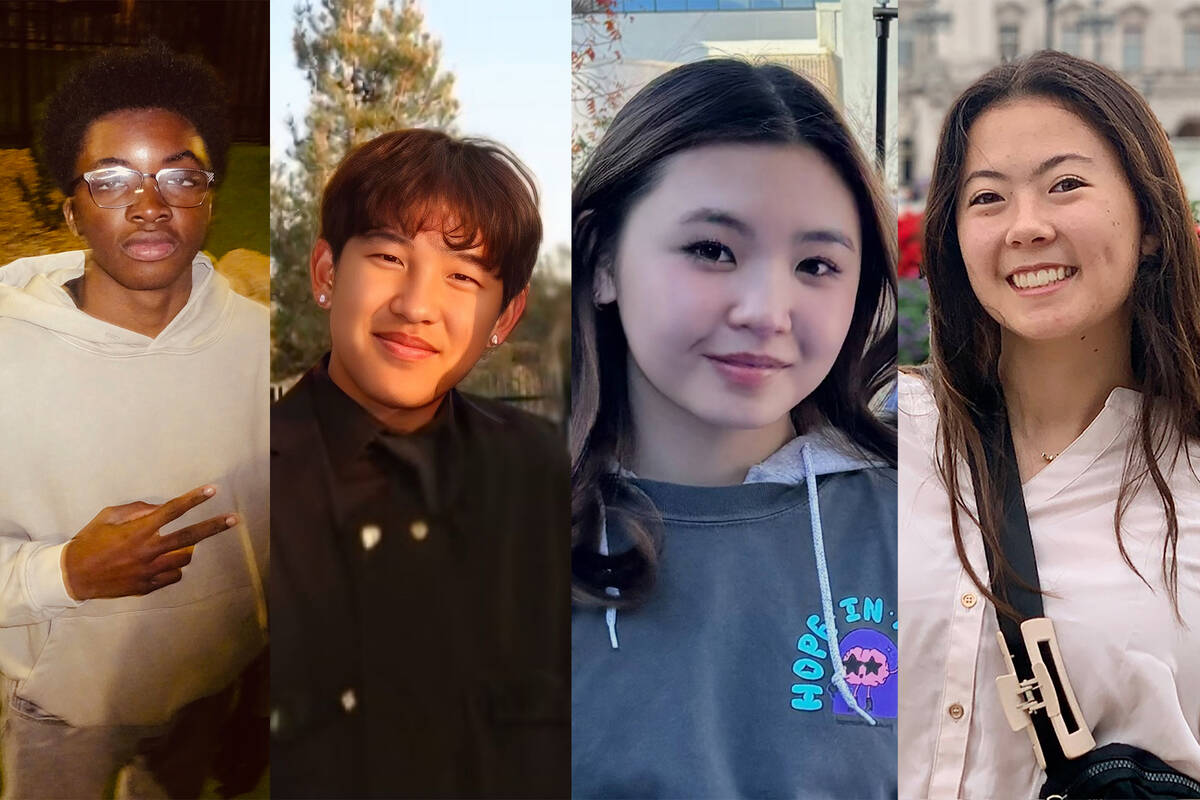Heed young people’s messages about mental health
With the start of another school year, it is important to understand what our youth are saying.
I have often discussed the mental health challenges facing our youth and how those challenges can be intertwined with mental health concerns.
So many of our youth are struggling with their mental health, and I think it is vital to find ways to support them.
Hope Means Nevada, a nonprofit led by teens, has become one of the leading voices across the state for our young people.
“From the lasting impacts of COVID-19 to negative social media use, school shootings and other chaotic world events, many teens are experiencing heightened levels of stress, anxiety, depression and suicidal thoughts,” HMN executive director Janna Velasco says. “In a state like Nevada, which is already grappling with high rates of youth mental health challenges, the need for targeted support has never been more urgent.
“HMN stands apart from other mental wellness organizations by focusing exclusively on supporting youth mental health, eliminating youth suicide in the state and empowering Nevada’s youth to live hopeful lives.”
Struggles facing youth
I talk to youth seemingly all the time, both professionally and personally. What strikes me is the number of young people struggling with mental health challenges. But I also see a willingness to shift this paradigm through increased awareness.
“High school is a tough time when academic goals, social stressors, family and home environments can exert immense pressure on students with limited support and coping mechanisms,” says Abigail Watanabe, one of HMN’s teen co-chairs. “It’s easy to get lost in the everyday shuffle of high school.”
Co-chair Noelle Paik adds: “I believe youth mental health is an urgent issue in Nevada and should be recognized as a public health crisis. Many young people in our state feel isolated and alone in their struggles because of a lack of support. Sadly, this can lead to devastating outcomes such as suicide.”
Finding the right support during times of struggle is imperative for a positive outcome in most cases.
“Sometimes it does not seem like there is enough support — or maybe we just do not know where to find it,” co-chair Jeremiah Irorobeje says. “I believe it would be better if Nevada focused on support in the form of prevention, not just reacting to a crisis when it happens. That way, more youth could feel seen, heard and helped before things get too hard to handle.”
Adults such as teachers, coaches and school staff can play vital roles in fostering healthy relationships in teens.
“Knowing that someone sees you and is willing to listen can be the thing that helps you keep going,” co-chair Kai Feng says. “Mental health doesn’t always need to be about therapy; it often starts with relationships, trust and communication.”
When the perfect storm of stressors hits at once for some students, the outcomes can be life-altering.
“During my freshman year, one of our classmates took her life,” Watanabe says. “She seemed like a normal, high-achieving student. This further drove home how well adjusted someone (who’s struggling) may appear on the outside.”
Importance of coping skills
This is why organizations such as HMN play such a pivotal role.
I equate coping skills to vitamins for our mental health. The more we use them, the more immunity we are likely to build toward mitigating life’s stressors.
Our youth in particular are more vulnerable to the stressors brought on by daily challenges. When youth do not properly address the stressors in their lives, they can be more susceptible to developing mental health conditions such as depression and anxiety, in addition to substance abuse issues.
“During stressful times, I find enjoyment in listening to music, singing, reading, taking naps, or getting some exercise to boost my dopamine levels,” Paik says. “Although I sometimes struggle with negative thoughts, I try to remind myself that the challenges I’m facing are temporary and that there are many positive aspects of my life to focus on.”
“Turning to my faith along with journaling are the most effective for me,” Irorobeje shares.
Routines can also be important for well-being. “Whether it’s making my bed in the morning or going to get my favorite food, routines help me feel a sense of normalcy in a period of chaos,” Feng says.
For more information about Hope Means Nevada, go to hopemeansnevada.org.
If you’re thinking about suicide, or are worried about a friend or loved one, help is available 24/7 by calling or texting the Lifeline network at 988. Live chat is available at 988lifeline.org.
Sheldon Jacobs, Psy.D., LMFT, is a licensed mental health professional based in Las Vegas. Contact him at drjacobs10@hotmail.com. Follow


















